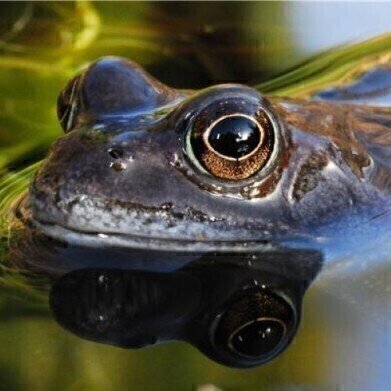-
 Amphibians could be affected by climate change
Amphibians could be affected by climate change
Air Clean Up
Climate change could cause loss of plants and animals
May 13 2013
Climate change could be responsible for the demise of animals and plant-life throughout the next century, according to scientists. The failure to reduce carbon dioxide emissions around the globe could lead to 50 per cent of common plants disappearing, along with 33 per cent of land animals vanishing, a recent study has shown.
With the continued rise in carbon dioxide emissions, global temperatures are estimated to reach four degrees centigrade above pre-industrial revolutionary figures by the year 2100. The increase in carbon dioxide emissions is currently on the highest trajectory estimated by scientists and looks set to stay this way unless drastic changes are made.
The continued emission of CO2 could cause a serious decline in common plants and animals. Scientists looked at around 50,000 common species and estimated the future geographical ranges of these species if climate change continues at its current rate. The rise in global temperatures could have massive effects on ecosystems making it difficult for the plants and animals to survive in their current environments.
The study found that the animals most likely to be affected the most by climate change are amphibians and reptiles. This is due to their inability to move quickly to better environments and the fact that they are more harmed by slight changes in climate.
Many of the animals and plants that will be impacted perform essential services to ecosystems, such as purifying air, water supplies and decomposing waste produce. The main areas where these losses are likely to take place are: Amazonia, Australia, Central America and Sub-Saharan Africa. The damage to the plants and animals will have knock-on effects in areas like air-quality, agriculture, clean water access and tourism.
Doctor Rachel Warren, from University of East Anglia's school of environmental science and lead scientist on the research, said: "While there has been much research on the effect of climate change on rare and endangered species, little has been known about how an increase in global temperature will affect more common species. This broader issue of potential range loss in widespread species is a serious concern as even small declines in these species can significantly disrupt ecosystems."
The research has shown that if measures are taken now to reduce carbon dioxide emissions drastically, it could help to decrease the damage that the world is facing. Slowing down climate change will enable plants and animals to adapt more adequately. Dr Warren said: "Our research provides crucial new evidence of how swift action to reduce CO2 and other greenhouse gases can prevent the biodiversity loss by reducing the amount of global warming."
Events
May 05 2024 Seville, Spain
May 13 2024 Munich, Germany
May 23 2024 Beijing, China
May 23 2024 Beijing, China
Jun 10 2024 Algiers, Algeria













